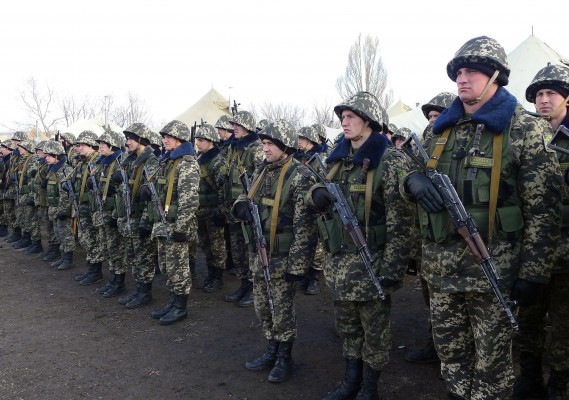A Prussian Approach to the Russian-European Conflict
September 25, 2014

At a speech in Estonia earlier this month, President Barack Obama asserted that “[t]he defense of Tallinn and Riga and Vilnius is just as important as the defense of Berlin and Paris and London.” He is of course referring to the status of the Baltic states—Estonia, Latvia, and Lithuania—as NATO members, and therefore allies of the United States. The great Prussian statesman Otto von Bismarck once said, “The whole of the Balkans is not worth the bones of a single Pomeranian grenadier,” and I would argue that the whole of the Baltic is not worth the bones of a single Texas Ranger. The United States and NATO need to reconsider their commitment to Eastern Europe.
Obama and Bismarck have a very different grasp of national interest and foreign affairs. Obama, equating the tiny Baltic countries to the large and powerful European states, is poorly prioritizing our interests abroad. The Baltic countries, like Georgia and Ukraine, were former Soviet republics, and before that, provinces of the Russian Empire. This is distinct from former Warsaw Pact countries, like NATO members Poland and Hungary, which were Soviet clients but independent countries. NATO, i.e. the U.S. Army and Friends, is now obligated to guarantee the borders of the European Union’s land grab in the former USSR. Along with the Warsaw Pact countries, territory that was until very recently a part of Russia has been incorporated into the E.U. and NATO. We’ve effectively moved the Iron Curtain up to Russia itself. Why should we assume this enormous risk? What would we have to gain in a territorial war with nuclear Russia? Are we willing to back the expansion of the Eurozone, another country’s free trade and single currency zone, with our own armed forces?
This is where Bismarck’s insight comes in. Our loyalty is to ourselves, not the Europeans. We have to consider our own national interest, costs and benefits, and above all, risk. Bismarck knew territorial wars in the Balkans were not worth the German Empire’s time or involvement. WWI would later begin in the Balkans between Austria-Hungary and Serbia, and we all know how that went. The Baltic countries have a large Russian minority—Estonia and Latvia are each about a quarter ethnic Russian—and were part of the Soviet Union/Russia until a generation ago. This is why they want us to protect them, a painfully one-sided deal made by signatories drunk on the collapse of international communism. Times have changed. Russia has invaded two former Soviet Socialist Republics (SSRs) it borders already to promote its national interests, Georgia in 2008 and Ukraine this year. Neither of those countries is in the E.U. or NATO, which meant their sovereignty was pegged to how aggressive Russian foreign policy was. As weaker states bordering a larger one they have historic ties to, they are in the Russian sphere of influence. The Russian claim to these countries is unquestionable from Putin’s view, while our Wilsonian liberal-democratic view has no concept of conquest or reconquest.
Along with Obama’s idealism about the equality of the Baltics with Britain, France and Germany, this impedes our ability to manage risk and pursue our own national interest. Obama isn’t running for president of Europe; naively regarding each European country equally as a strategic ally is a poor move, and it shows how incapable we are at foreign policy. Anger the Russians to please the Estonians? Really? If the E.U. wants to absorb former Russian territory, that should be their own imbroglio. Let the Teutonic Order and Muscovy wrangle over the Baltic. No American should die for Lithuania. The entanglement of the E.U. and NATO does not serve American interests. We are a trading nation and should not have to choose between Europe and Russia over border spats.
Of course, the only reason our NATO obligations to the Baltic countries matter now is because Russia has invaded Ukraine and annexed Crimea. Estonia, Latvia, and Lithuania, as well as Poland, are obviously concerned. But Putin isn’t stupid. No amount of imperial revanchism—the desire to reclaim “lost” territory—would justify attacking the European Union or NATO. Britain and France have nukes. Russia has nukes. We have nukes. Rather, Putin’s Russia has two objectives, which are to make a show of force in response to decades of international interventions led by NATO members (Yugoslavia/Bosnia, Iraq, Afghanistan, Libya), and to extend Russian influence or control as far as possible in the former Soviet Union/Russian Empire. So long as Russia and Ukraine dispute Crimea, Ukraine cannot join NATO or the E.U.—just as Georgia cannot because of the Abkhazia-South Ossetia dispute. Sensible alliances don’t add members who are already involved in conflicts.









